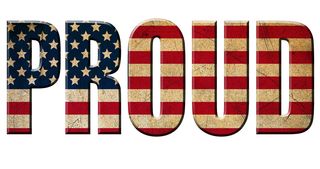Self-Esteem
What Is the Difference Between Pride and Arrogance?
Pride and arrogance, though similar, are different in important ways.
Posted June 18, 2018 Reviewed by Ekua Hagan

I am watching the World Cup. More specifically, the match between England and Tunisia. It is tied 1-1.
You can really feel the sense of national pride in the fans on both sides; they are dancing, singing, and cheering on their respective teams.
But are these fans proud or...arrogant? It is good to be proud, of course, but is it good to be arrogant?
Monet wrote, “I tell myself that anyone who says he has finished a canvas is terribly arrogant. Finished means complete, perfect, and I toil away without making any progress, searching, fumbling around, without achieving anything much.”1
Qur'an calls Satan “arrogant” for refusing to bow before Adam. George Carlin once referred to golf as an arrogant game. Frank Lloyd Wright is reported to have said that early in life, having been given the choice between hypocritical humility and honest arrogance, he chose the latter.

Pride
Before I discuss the meaning of arrogance, allow me to discuss the meaning of pride. Pride refers to those feelings that are “generated by appraisals that one is responsible for a socially valued outcome or for being a socially valued person.”2
According to this definition, then, pride requires being responsible for an outcome that is valued socially. If you scored a nice goal for your team, for instance, you might feel proud of your accomplishment.
Pride can be considered a positive emotion. Pride in “one’s successes might promote positive behaviors in the achievement domain...and contribute to the development of a genuine and deep-rooted sense of self-esteem.”3
Arrogance
What is arrogance? Arrogance refers to excessive and overbearing pride. If you are arrogant, then you may believe that scoring that nice goal in the dying minutes of a match means that you have been carrying the team, that your teammates are useless without you, that if it were not for you, your team would have had no chance whatsoever at succeeding.
If you are arrogant, you are also more likely to compare everyone’s accomplishment against your (incomparable) accomplishment, constantly reaffirming your own superiority. Your hubris has no bounds.
(Note that I use arrogance, hubris, and egotistical pride interchangeably, just as most research articles I will be referring to, do).

What is the difference between pride and arrogance?
Pride arises out of taking responsibility for a specific action that is considered positive and socially valued, but arrogance arises from pride not in one’s actions but in one’s “global self.”
That is, pride results from “attributions to internal, unstable, controllable causes (I won because I practiced),” and is associated with high self-esteem.3 So we gain a sense of pride from doing things that are in our power to do but require effort and determination. The result is increased self-esteem.
Egotistical pride, however, results from “attributions to internal, stable, uncontrollable causes (I won because I’m always great),” and is associated with narcissism.3 The assumption is that great actions do not result from the effort, but are natural consequences of our greatness. In other words, everything we touch turns to gold.
It has also been shown that feelings of pride correspond with increased empathy and positive reactions toward out-group members, whereas arrogance is linked with lower empathy, and as a result, increased hostility toward others, including out-group members.4
The more power people have, “the more pride they feel,” but “to the extent that this pride is hubristic,” then those powerful people may also be more prejudiced. The implications can be worrisome. Why?
Because business and political leaders (and other people of high-status) “who are likely motivated by pride on an almost daily basis are precisely the individuals whose prejudice could do the most harm, leading them to hire and fire others in a discriminatory manner.”4
References
1. House, J. (1986). Monet: Nature into art. New Haven: Yale University Press
2. Mascolo, M. F., & Fischer, K. W. (1995). Developmental transformations in appraisals for pride, shame, and guilt. In J. Tangney, & K. Fischer (Eds.), Self-conscious emotions: The psychology of shame, guilt, embarrassment, and pride (pp. 64–113). New York, NY: Guilford Press.
3. Tracy, J. L., & Robins, R. W. (2007). The psychological structure of pride: A tale of two facets. Journal of Personality and Social Psychology, 92, 506–525.
4. Ashton-James, C. E., & Tracy, J. L. (2012). Pride and prejudice: How feelings about the self influence judgments of others. Personality and Social Psychology Bulletin, 38, 466 – 476.


